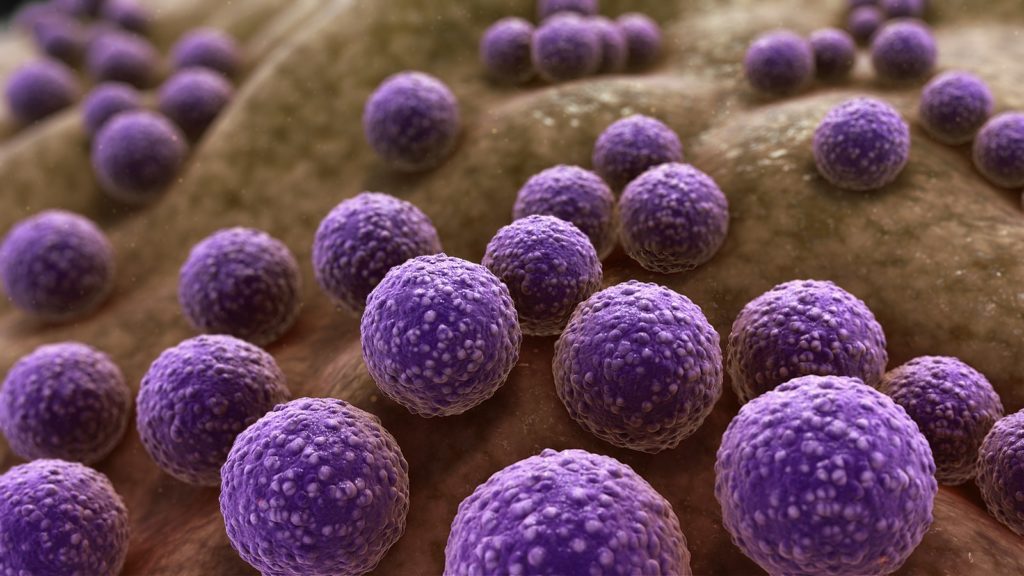The primary purpose of this study is to see if the vaccine is safe and prevents genital herpes disease in women who are not infected.
The primary purpose of this study is to see if the vaccine is safe and prevents genital herpes disease in women who are not infected. Condition:- Herpes Simplex- Sexually Transmitted Diseases Study Type: InterventionalStudy Design: Prevention, Randomized, Active Control, Parallel Assignment Official Title: A double-blind, randomized, controlled Phase III study to assess the prophylactic efficacy and safety of gD-Alum/MPL vaccine in the prevention of genital herpes disease in young women who are HSV-1 and -2 seronegative Further Study Details: Pivotal Phase III efficacy study. Experimental design: multi-center, double-blind, controlled and randomized. Indication: To prevent genital herpes disease in women who are uninfected. Control: Investigational formulation and schedule of a Hepatitis A vaccine (Havrix). Treatment allocation: Randomized with balanced allocation (1:1). Blinding: Double-blind. The subjects and the study personnel will not know which treatment is being administered. Eligibility Ages Eligible for Study: 18 Years – 30 Years, Genders Eligible for Study: Female Accepts Healthy VolunteersCriteria INCLUSION CRITERIA:A female between, and including, 18 and 30 years of age at the time of the first vaccination. Written informed consent obtained from the subject. Free of obvious health problems as established by medical history and clinical examination before entering into the study. Seronegative for HSV-1 and HSV-2 by Western blot. Subject must be of non-childbearing potential, i.e., either surgically sterilized or, if of childbearing potential, she must be using a highly effective method of birth control (e.g., intrauterine contraceptive device; oral contraceptives; diaphragm or condom in combination with contraceptive jelly, cream or foam; Norplant, DepoProvera, contraceptive skin patch or cervical ring) for 30 days prior to vaccination, have a negative urine pregnancy test and must agree to continue such precautions for two months after completion of the vaccination series. A subject for whom the investigator believes can and will comply with the requirements of the protocol (e.g. completion of the memory aid/diary cards, return for follow-up visits, accessible by phone or pager, able to self-sample and not planning on moving from study area). EXCLUSION CRITERIA:Pregnant or nursing female. Acute disease at the time of enrollment (defer vaccination until subject recovers). Acute disease is defined as the presence of a moderate or severe illness with or without fever. Study vaccine can be administered to persons with a minor illness such as diarrhea, mild upper respiratory infection with or without low-grade febrile illness. Clinical signs or symptoms of current oro-labial, genital or non-genital HSV disease, such as swelling, papules, vesicles, pustules, ulcers, crusts, fissures, erythema, discharge, pain, burning, itching, tingling, or dysuria. History of previous or planned vaccination against hepatitis A or a history of hepatitis A infection. Previous vaccination against herpes. Previous administration of monophosphoryl lipid A (MPL) adjuvant (no vaccines currently licensed in the USA contain this). History of any confirmed oro-labial, genital or non-genital HSV disease or infection. Use of any investigational or non-registered drug or vaccine other than the study vaccine(s) within 30 days preceding the first dose of study vaccine, or planned use during the study period. Planned administration of a non-study vaccine within 30 days of the first dose of study vaccine with the following exceptions: Administration of routine Meningococcal, Hepatitis B, inactivated Influenza, and Diphtheria/Tetanus vaccine up to 8 days before the first dose of study vaccine is allowed. History of allergic disease or reactions likely to be exacerbated by any component of the study vaccines, e.g., aluminum, MPL, alum-MPL, 2-phenoxyethanol. Any confirmed or suspected immunosuppressive or immunodeficient condition, including human immunodeficiency virus (HIV) infection. Acute or chronic, clinically significant (unresolved, requiring on-going medical management or medication, etc.) pulmonary, cardiovascular, hepatic or renal functional abnormality, as determined by medical history or physical examination. Oral temperature 99.5F/axillary temperature 99.5F/tympanic temperature on oral setting 99.5F. Chronic administration (defined as more than 14 days) of immunosuppressants or other immune-modifying drugs within six months prior to the first vaccine dose. (For corticosteroids, this will mean prednisone, or equivalent, 0.5 mg/kg/day. Inhaled and topical steroids are allowed.) Administration of immunoglobulins and/or any blood products within the three months preceding the first dose of study vaccine or planned administration during the study period. Recent history of chronic alcohol consumption (defined as more than 5 oz of ethanol [absolute alcohol] per day) and/or drug abuse. History of a sexually transmitted infection within 30 days preceding the first dose of study vaccine. Expected Total Enrollment: 7550 [1] University of Washington Virology Research Clinic, Seattle, [2] University of Utah School of Medicine, Salt Lake City
All content and media on the HealthEngine Blog is created and published online for informational purposes only. It is not intended to be a substitute for professional medical advice and should not be relied on as health or personal advice. Always seek the guidance of your doctor or other qualified health professional with any questions you may have regarding your health or a medical condition. Never disregard the advice of a medical professional, or delay in seeking it because of something you have read on this Website. If you think you may have a medical emergency, call your doctor, go to the nearest hospital emergency department, or call the emergency services immediately.







